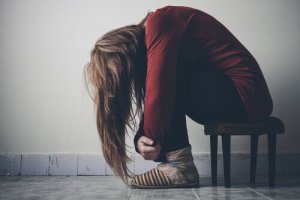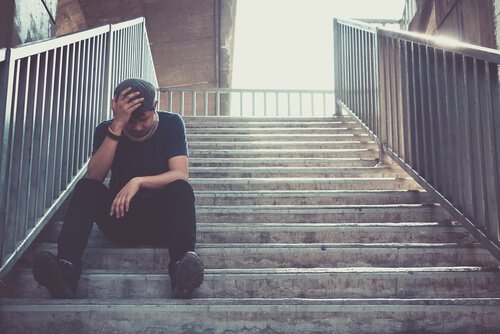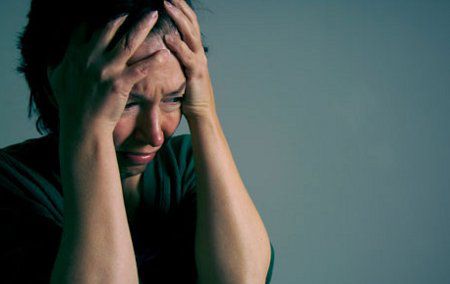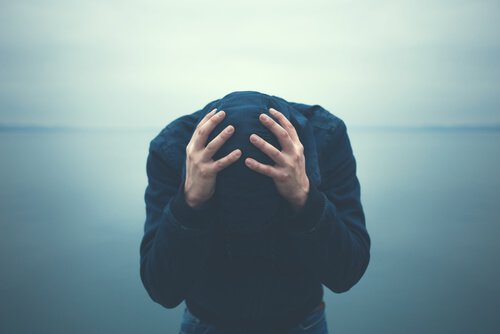Cannabis: Mental Disorder Russian Roulette

Cannabis isn’t just the most highly consumed illegal drug in the world. It’s also one of the drugs with the most myths about what it does to your mind and body. The Spanish Observatory of Drugs and Addiction says that the average age people start using it is between 14 and 15.
The most recent peer-reviewed scientific studies have showed that using if often can lead to structural changes in your brain tissue. Among other things, it causes significant changes that can lead to problems with memory, attention, perception, coordination, and concentration.
These changes to your brain lead to a decrease in personal, social, and work performance. They can also bring emotional and physical issues along with them. A lot of people use it because it helps them relax, avoid things, experiment, or have fun. But there’s another side to that coin. This substance can also be the gateway to significant mental problems like psychosis or anxiety.
“Rusty thinks I should smoke marijuana, and I did for a while, but it only makes me giggle.”
-Truman Capote-
Is it a medicien or a drug?
Cannabis sativa is a plant with more than 400 chemical components. Of the ones we can identify, at least 60 are cannabinoids. The three most important of these are THC, CBD, and CBN. Delta-9-tetrahydrocannabinol (THC) is the main psychoactive ingredient in cannabis. You can find it in the buds, and in smaller amounts on the leaves.
Nowadays, with cultivation and genetic selection techniques, they can create strains with a greater THC concentration. They’ve gone from 2-5% THC all the way up to 20% in some cases.

Its psychoactive effects start just a few minutes after you smoke. They last for about 1-2 hours, although the THC stays in your body for a long time. In fact, you can even detect it in habitual smokers’ bodies up to a month later.
Some side effects of it are a reduction in short-term memory, dry mouth, red eyes, alterations in perception, changes to motor abilities, and an increased appetite, among other things.
People who use cannabis can end up developing an addiction. There are a wide range of different mental and physical states they might go through as a result of it.
Intoxication
There’s also a wide variety in the more intense effects of cannabis. They depend a lot on how much you take and how much THC there is (along with the THC/CBD proportions). But they also depend on your personality, your expectations, and the context you take it in.
Using cannabis is usually a two-sided coin. It often starts out with a stimulation phase (euphoria and a nice feeling). Then it leads to a mostly sedated phase (relaxation and sleepiness). For some people, though, especially people who don’t use it often or take too much, they might experience anxiety, dysphoria, paranoia, and/or panic.
Dependence
This means you have an intense urge to take more. It’s a loss of control of your cannabis use (for example, trying to use less and not being able to). You need the substance to do certain activities (for example, sleeping) or you do a lot of things with the goal of getting this substance and using it.
You’ll start to feel anxious if you haven’t smoked, along with having mood swings and sleep problems. If any one of these things has showed up, you’re dealing with an addiction.
Withdrawal
When you’ve used it intensely, or for a long time, especially with habitual users, the symptoms that come along with not using it anymore are: irritability, anger or aggresiveness, nervousness or anxiety, trouble sleeping, lack of appetite, weight loss, restlessness, depressed mood, abdominal pain, spasms, shaking, sweating, fever, chills, and headaches. These symptoms show up in over 50% of all intense users and 15% of all habitual users.
The lottery of being genetically vulnerable
It’s pretty common to think those are all isolated scenarios. “That’s never going to happen, it’s actually good for me.” But when it comes to taking drugs, genetic vulnerability has a big part to play. Some people have a higher risk of developing addictions and mental illnesses because of their genetic background.

Some people are more likely to have certain mental disorders than others. It can be anything from their nervous systems, neural network, genetic makeup, life experiences, and personality types. There are also psychotic disorders that lay “dormant” and only pop out when you take drugs.
No one can tell you for certain what your reaction to the next hit of marijuana is going to be. Taking drugs is a personal decision, and everyone has their personal responsibility for the consequences. You can look the other way but the truth is that drugs alter your mental, emotional, and physical states.
“I assumed I was in some way immune to it and wouldn’t get hooked. But addiction doesn’t negotiate and it gradually crept up on me like a fog…It was so insidious. It took over my life without my really noticing.”
-Eric Clapton-
What about the people who say it’s good for you?
There are plenty of web pages, articles, and associations that defend cannabis use. They say it has “therapeutic functions” and “health benefits.” One of the main things they talk about is how it can soothe pain and relax you.
There are a lot of social movements in favor of normalizing and legalizing it. But you have to remember that taking this plant in any of its forms isn’t a good idea. If you compare all the supposed positive effects with the negative symptoms, it’s just not worth it.
It’s true that the plant has an active ingredient that might have some benefits to it. It’s also true that clinical and pharmacological studies show that it’s a good option for some therapy patients.
But they also isolate that specific ingredient and control its concentration and its doses. So just because it can be good in some ways doesn’t mean it’s entirely beneficial to take it.
Bad trips
The effects of a harmful intoxication are what some people call a “bad trip.” It can lead you to experience symptoms of anxiety, depersonalization, and derealization.
Other symptoms are intense panic, feeling like you’re going to die, motor function changes, a feeling of paralysis, and sensory-perceptual changes like delusions and temporary visual hallucinations.
Here are some of the symptoms:
- Anxiety. It’s common to to have symptoms of anxiety and/or panic disorders after using it for a while.
- Depression. It increases the risk of developing depressive disorders and attempting suicide.
- Bipolar disorder. It can lead to psychotic symptoms, manic phases, and more relapses.
- Amotivational syndrome. This brings along a loss of energy, indifference, apathy, and cognitive issues.
- Cognitive deterioriation. It slows down or destroys these abilities: reaction, perception, memory, problem solving, concentration, attention, etc.
- Psychosis. There are studies showing that using marijuana doubles your chances of a psychotic break. It can also cause short-term psychotic disorders, along with more long-term, chronic psychoses. They’ve shown that cannabis use is very common in patients with serious mental disorders like schizophrenia.
- Cannabis flashbacks. This means reliving experiences you had while high, but in this case they happen while sober.
- Delirium. This a temporary reaction. What usually comes up are delusions, shaking, agitation, fear, deep sleep, hallucinations, etc. It’s not very common, but it has a strong link to large doses.
- Effects on sleep. THC induces sleep and changes your sleep-wake cycles.
- Effects on diet. When you only take it occasionally your appetite usually goes up. But for people who take it often their appetite usually goes down. Using cannabis can also lead to a greater fat build-up in the body.

No one knows what’s waiting for them each time they take drugs. Mental disorders show up without warning, and some trips are one way.
Drugs are one of life’s biggest wrecking balls. Things start off when you don’t value you yourself, and they end when you bring everyone you love down with you to rock bottom.
“Every addiction arises from an unconscious refusal to face and move through your own pain.”
-Eckhart Tolle-
Cannabis isn’t just the most highly consumed illegal drug in the world. It’s also one of the drugs with the most myths about what it does to your mind and body. The Spanish Observatory of Drugs and Addiction says that the average age people start using it is between 14 and 15.
The most recent peer-reviewed scientific studies have showed that using if often can lead to structural changes in your brain tissue. Among other things, it causes significant changes that can lead to problems with memory, attention, perception, coordination, and concentration.
These changes to your brain lead to a decrease in personal, social, and work performance. They can also bring emotional and physical issues along with them. A lot of people use it because it helps them relax, avoid things, experiment, or have fun. But there’s another side to that coin. This substance can also be the gateway to significant mental problems like psychosis or anxiety.
“Rusty thinks I should smoke marijuana, and I did for a while, but it only makes me giggle.”
-Truman Capote-
Is it a medicien or a drug?
Cannabis sativa is a plant with more than 400 chemical components. Of the ones we can identify, at least 60 are cannabinoids. The three most important of these are THC, CBD, and CBN. Delta-9-tetrahydrocannabinol (THC) is the main psychoactive ingredient in cannabis. You can find it in the buds, and in smaller amounts on the leaves.
Nowadays, with cultivation and genetic selection techniques, they can create strains with a greater THC concentration. They’ve gone from 2-5% THC all the way up to 20% in some cases.

Its psychoactive effects start just a few minutes after you smoke. They last for about 1-2 hours, although the THC stays in your body for a long time. In fact, you can even detect it in habitual smokers’ bodies up to a month later.
Some side effects of it are a reduction in short-term memory, dry mouth, red eyes, alterations in perception, changes to motor abilities, and an increased appetite, among other things.
People who use cannabis can end up developing an addiction. There are a wide range of different mental and physical states they might go through as a result of it.
Intoxication
There’s also a wide variety in the more intense effects of cannabis. They depend a lot on how much you take and how much THC there is (along with the THC/CBD proportions). But they also depend on your personality, your expectations, and the context you take it in.
Using cannabis is usually a two-sided coin. It often starts out with a stimulation phase (euphoria and a nice feeling). Then it leads to a mostly sedated phase (relaxation and sleepiness). For some people, though, especially people who don’t use it often or take too much, they might experience anxiety, dysphoria, paranoia, and/or panic.
Dependence
This means you have an intense urge to take more. It’s a loss of control of your cannabis use (for example, trying to use less and not being able to). You need the substance to do certain activities (for example, sleeping) or you do a lot of things with the goal of getting this substance and using it.
You’ll start to feel anxious if you haven’t smoked, along with having mood swings and sleep problems. If any one of these things has showed up, you’re dealing with an addiction.
Withdrawal
When you’ve used it intensely, or for a long time, especially with habitual users, the symptoms that come along with not using it anymore are: irritability, anger or aggresiveness, nervousness or anxiety, trouble sleeping, lack of appetite, weight loss, restlessness, depressed mood, abdominal pain, spasms, shaking, sweating, fever, chills, and headaches. These symptoms show up in over 50% of all intense users and 15% of all habitual users.
The lottery of being genetically vulnerable
It’s pretty common to think those are all isolated scenarios. “That’s never going to happen, it’s actually good for me.” But when it comes to taking drugs, genetic vulnerability has a big part to play. Some people have a higher risk of developing addictions and mental illnesses because of their genetic background.

Some people are more likely to have certain mental disorders than others. It can be anything from their nervous systems, neural network, genetic makeup, life experiences, and personality types. There are also psychotic disorders that lay “dormant” and only pop out when you take drugs.
No one can tell you for certain what your reaction to the next hit of marijuana is going to be. Taking drugs is a personal decision, and everyone has their personal responsibility for the consequences. You can look the other way but the truth is that drugs alter your mental, emotional, and physical states.
“I assumed I was in some way immune to it and wouldn’t get hooked. But addiction doesn’t negotiate and it gradually crept up on me like a fog…It was so insidious. It took over my life without my really noticing.”
-Eric Clapton-
What about the people who say it’s good for you?
There are plenty of web pages, articles, and associations that defend cannabis use. They say it has “therapeutic functions” and “health benefits.” One of the main things they talk about is how it can soothe pain and relax you.
There are a lot of social movements in favor of normalizing and legalizing it. But you have to remember that taking this plant in any of its forms isn’t a good idea. If you compare all the supposed positive effects with the negative symptoms, it’s just not worth it.
It’s true that the plant has an active ingredient that might have some benefits to it. It’s also true that clinical and pharmacological studies show that it’s a good option for some therapy patients.
But they also isolate that specific ingredient and control its concentration and its doses. So just because it can be good in some ways doesn’t mean it’s entirely beneficial to take it.
Bad trips
The effects of a harmful intoxication are what some people call a “bad trip.” It can lead you to experience symptoms of anxiety, depersonalization, and derealization.
Other symptoms are intense panic, feeling like you’re going to die, motor function changes, a feeling of paralysis, and sensory-perceptual changes like delusions and temporary visual hallucinations.
Here are some of the symptoms:
- Anxiety. It’s common to to have symptoms of anxiety and/or panic disorders after using it for a while.
- Depression. It increases the risk of developing depressive disorders and attempting suicide.
- Bipolar disorder. It can lead to psychotic symptoms, manic phases, and more relapses.
- Amotivational syndrome. This brings along a loss of energy, indifference, apathy, and cognitive issues.
- Cognitive deterioriation. It slows down or destroys these abilities: reaction, perception, memory, problem solving, concentration, attention, etc.
- Psychosis. There are studies showing that using marijuana doubles your chances of a psychotic break. It can also cause short-term psychotic disorders, along with more long-term, chronic psychoses. They’ve shown that cannabis use is very common in patients with serious mental disorders like schizophrenia.
- Cannabis flashbacks. This means reliving experiences you had while high, but in this case they happen while sober.
- Delirium. This a temporary reaction. What usually comes up are delusions, shaking, agitation, fear, deep sleep, hallucinations, etc. It’s not very common, but it has a strong link to large doses.
- Effects on sleep. THC induces sleep and changes your sleep-wake cycles.
- Effects on diet. When you only take it occasionally your appetite usually goes up. But for people who take it often their appetite usually goes down. Using cannabis can also lead to a greater fat build-up in the body.

No one knows what’s waiting for them each time they take drugs. Mental disorders show up without warning, and some trips are one way.
Drugs are one of life’s biggest wrecking balls. Things start off when you don’t value you yourself, and they end when you bring everyone you love down with you to rock bottom.
“Every addiction arises from an unconscious refusal to face and move through your own pain.”
-Eckhart Tolle-
This text is provided for informational purposes only and does not replace consultation with a professional. If in doubt, consult your specialist.







